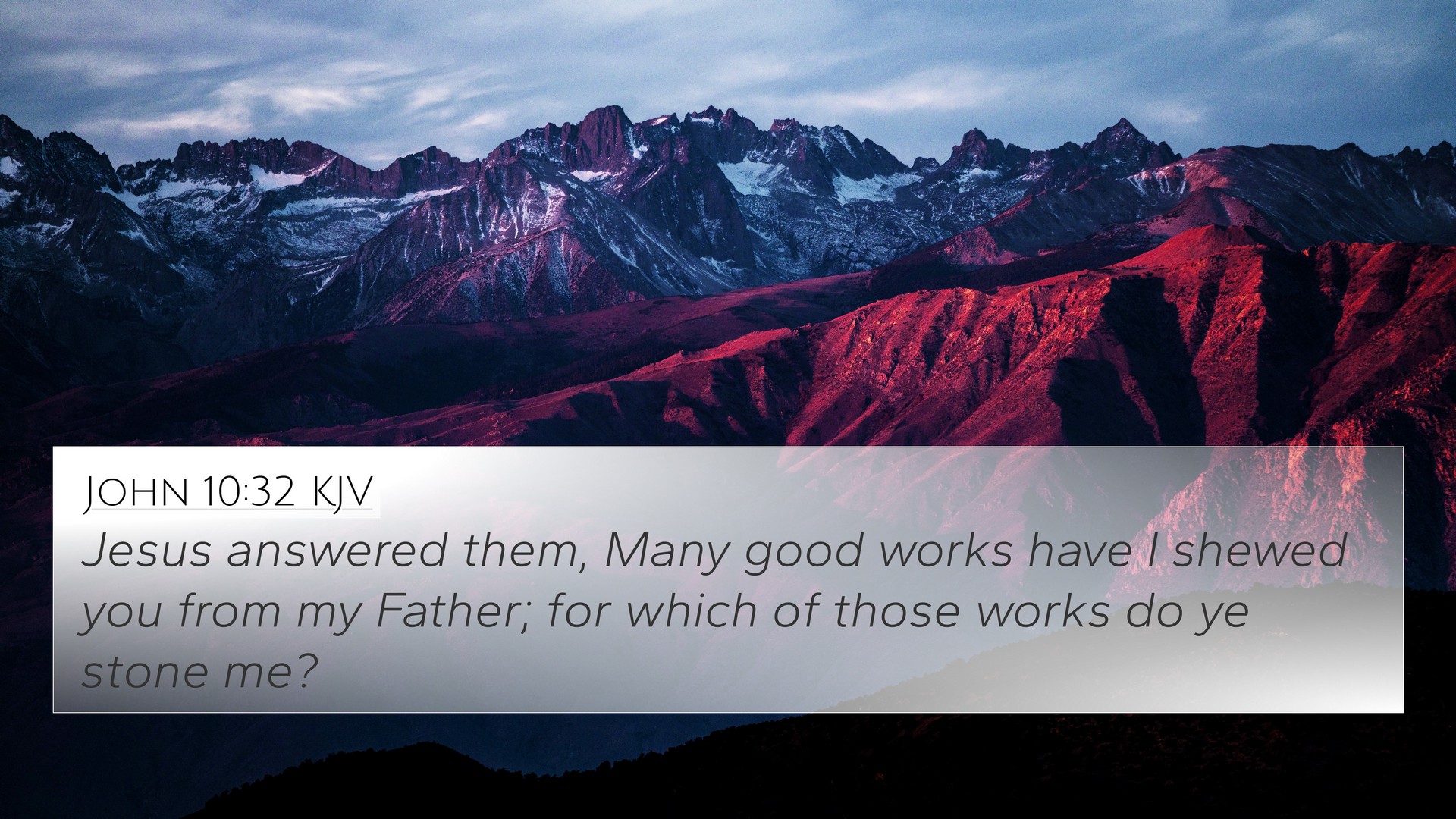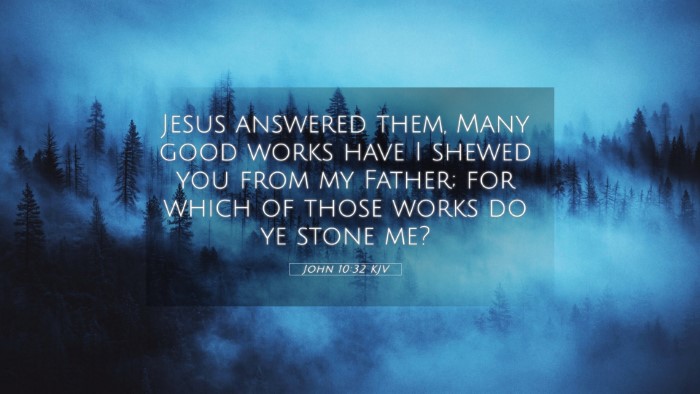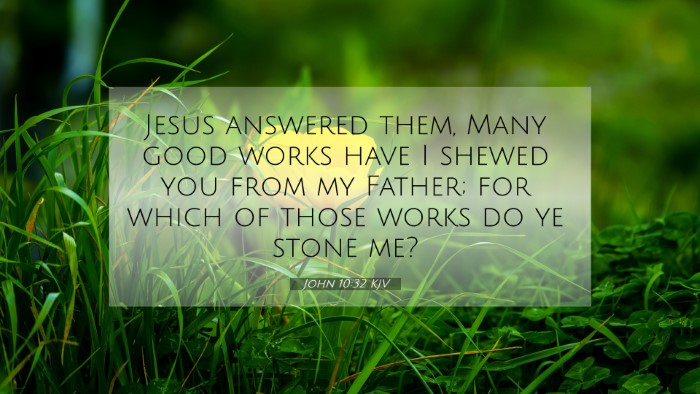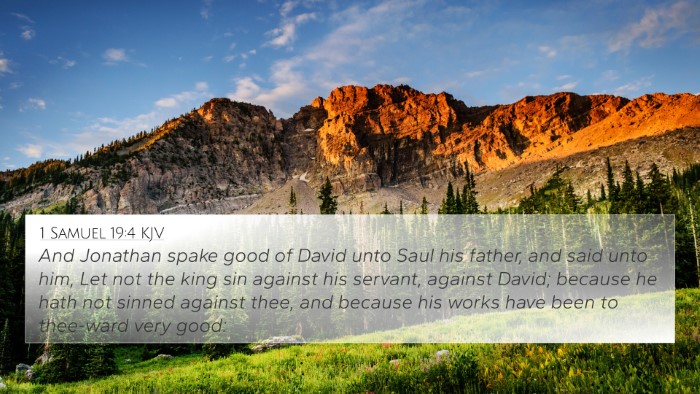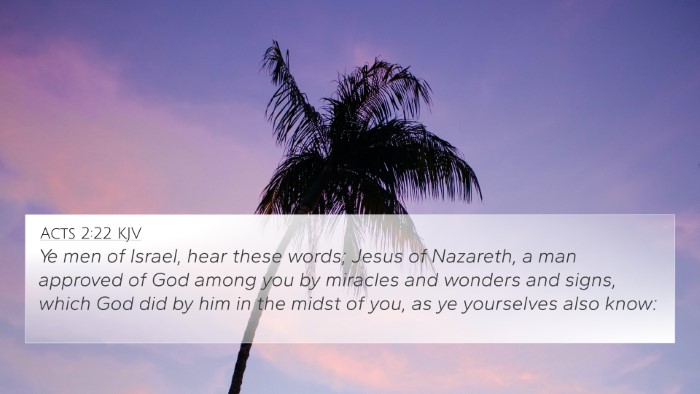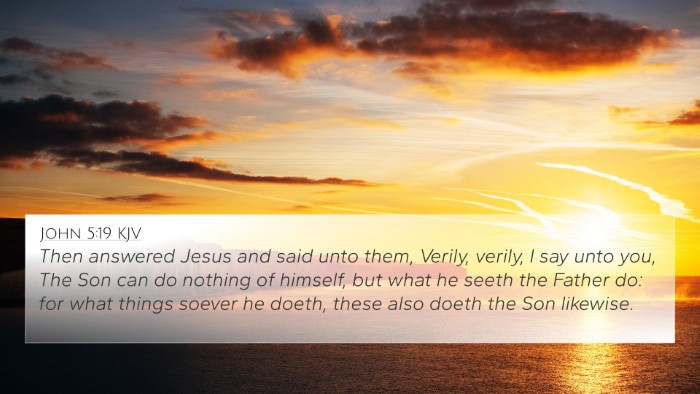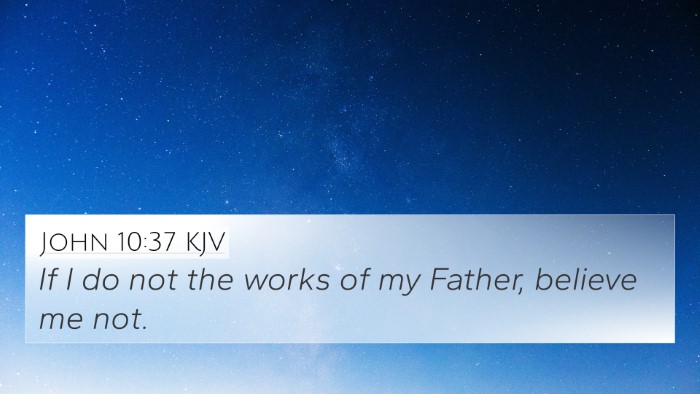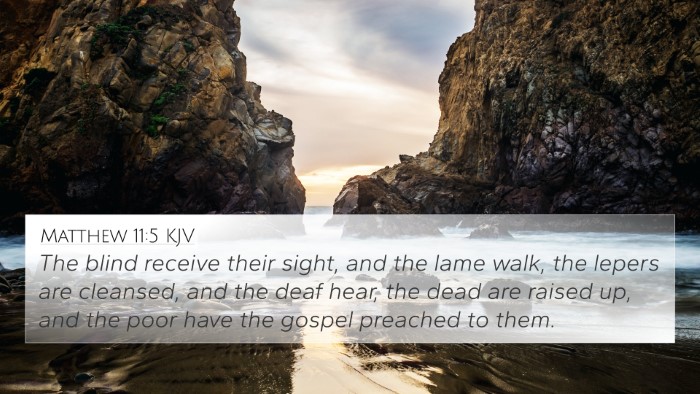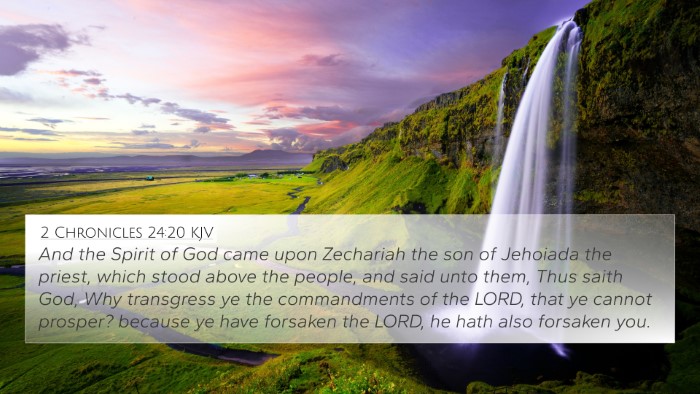Understanding John 10:32: Insights from Public Domain Commentaries
John 10:32 states:
"Jesus answered them, Many good works have I shewed you from my Father; for which of those works do ye stone me?"
This verse captures a moment where Jesus responds to accusations from the Jewish leaders, defending His ministry and the good works He has performed. Let’s explore its meaning through insights from various public domain commentaries.
Contextual Background
In the preceding narrative, Jesus has been proclaiming His identity as the Good Shepherd. The tension grows as He performs miraculous signs and speaks truths that challenge the religious status quo. This verse is situated within the discourse where Jesus is asserting His unity with the Father and the divine authority given to Him.
Commentary Insights
-
Matthew Henry:
Henry emphasizes that Jesus' question points out the inconsistency of His accusers. He has demonstrated His divinity through "good works" that reflect the will of God, making it illogical for them to retaliate against Him. This highlights the hardness of their hearts and their disconnection from genuine truth.
-
Albert Barnes:
Barnes comments on the phrase "good works," noting that Jesus refers not merely to miraculous acts but to the entirety of His ministry, which includes moral teachings and societal healing. He supports the notion that Jesus promotes the Godly character necessary for true leadership and discipleship.
-
Adam Clarke:
Clarke provides clarity on the term "stone me," indicating a deliberate act of rejection and violence against the truth. He outlines that Jesus challenges the idea of wisdom in punishing Him for His acts of compassion, signifying a greater spiritual blindness.
Thematic Connections
This verse stands as a pivotal link within the broader themes of truth, authority, and the evidence of divine works. Here are highlighted connections:
- Echoes of Psalms 118:22-23: This passage also speaks to the rejection of a cornerstone – resonating the idea that Jesus, as the Messiah, is often misunderstood and scorned.
- Hebrews 2:3-4: Focuses on the testimonies that affirm Jesus’ miraculous works, accentuating that such miracles serve to validate His teachings.
- Matthew 12:24-28: Relates to Jesus casting out demons—an act of divine authority, juxtaposed with accusations of working by demonic power.
- John 5:36: Here, Jesus points out that His works bear witness to His identity, reinforcing the affirmation that good works are signs of divine mission.
- Acts 2:22: Reflects on the miracles performed by Jesus as evidence of His authentication from God, emphasizing the role of divine works throughout the New Testament.
- John 14:10: Jesus underscores that His words and works come from the Father, inviting a deeper understanding of their connection to divine origin.
- 1 Peter 2:12: This verse encourages believers to showcase good works, akin to Jesus’ own ministry that glorified the Father amidst opposition.
Cross-Referencing Biblical Texts
John 10:32 allows for extensive cross-referencing, enriching our study with insights from various scriptures. Here are tools and methods for cross-referencing the Bible effectively:
- Bible Concordance: Utilize a concordance to locate key terms and phrases within the Bible.
- Bible Cross-Reference Guide: Employ guides that show connections between different verses discussing similar themes or ideas.
- Cross-Reference Bible Study: Implement structured studies where one explores interconnected scriptures to derive deeper meaning.
- How to Use Bible Cross-References: Consider how thematic links and narratives across scriptures relate to specific verses.
Conclusion
John 10:32 engages believers in deeper reflection on the nature of Jesus' ministry, showcasing His divine authority through good works that align with the Father's will. By leveraging cross-referencing biblical texts, readers can unveil the complex web of connections that enrich their understanding of scripture and illuminate the message of Christ.
Further Study and Reflection
As you contemplate the significance of John 10:32, consider the following actions:
- Reflect on Jesus' identity: What do His works reveal about who He is?
- Study the connections: How do the mentioned cross-references illuminate the message in John 10:32?
- Engage in inter-Biblical dialogue: What can we learn from the interplay between Old and New Testament passages regarding Jesus’ character and mission?
